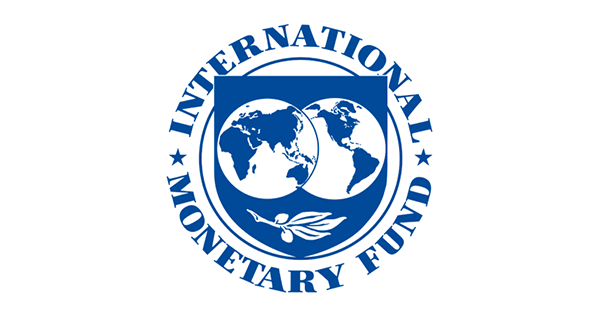By Steve Gelsi and Greg Robb
While the economy seems to be chugging along, the list of possible threats appears to be getting longer as banks clock signs of tariff stress
Fifth Third Bank Chief Executive Tim Spence says his business clients are optimistic about the economy despite uncertainty over tariffs and other unknowns.
Bankers tend to use a variety of data points to gauge the state of the economy, depending on the institution and the individual doing the forecasting. And after this week’s stock-market drop for bank stocks, they’ve scoured every one of them.
Despite the customary optimism from banks as a way to encourage economic activity, this week’s earnings updates revealed that lenders continue to watch for key data points around tariffs impacting client costs, as well as some weakness in certain sectors – such as sluggish home construction and softness in the auto-financing business.
Banks are also increasing their scrutiny of their business-lending activities, after bank stocks sold off this week due to the fallout from high-profile bankruptcies at auto-parts seller First Brands and subprime auto lender Tricolor. But so far, they haven’t reported any alarming rises in delinquent loans, another key metric.
JPMorgan Chase & Co. (JPM) Chief Executive Jamie Dimon raised the possibility of more “cockroaches” in the form of credit problems, which has banks studying their balance sheets.
Fifth Third Bancorp (FITB) Chief Executive Tim Spence summed up the current environment as “nauseous optimism” – a variation on the more common term, “cautious optimism.”
The nauseousness comes from tariff uncertainty that “absolutely continues to weigh” on some clients, he said. It’s a factor in more persistent inflation, which in turn impacts consumer spending and borrowing.
On the other hand, expected interest-rate cuts by the Federal Reserve are providing hope among businesses of improved demand and investment.
Clients that have put off capital improvements are now seeking loans, Spence noted.
“We are getting requests now for financing that are reflected in the pipeline in the middle-market business, in particular, to support that sort of shift from rent to own,” Spence said. “So I think that’s quite positive.”
The bank’s customers in the logistics business function as a “good bellwether” on the economy and have also been somewhat upbeat, he added.
“We’re hearing from logistics clients that there hasn’t exactly been a huge rebound, but that the activity has stabilized and is moving on the upswing,” Spence said, with help from businesses lifted by government infrastructure investments and AI-infrastructure efforts.
On the down side, however, has been residential construction and autos, according to Spence.
Credit problems appear to be idiosyncratic for now
Dimon’s comments about the possibility for more trouble in bank loans came up again Friday on an earnings call for Huntington Bancshares Inc. (HBAN), as the bank reported stronger-than-expected third-quarter earnings.
“I’m obviously aware of Jamie’s comments this week, but I don’t see it broadly affecting the industry, and many of those who reported are suggesting the consumer is in relatively good shape,” said Huntington CEO Stephen Steinour. “We certainly are not seeing forward indicators in terms of delinquency or other measures.”
Bankers this week told MarketWatch that the U.S. economy is so complex, there’s no single indicator that would sum up the outlook for the consumer. Since economic downturns tend to crop up for a variety of reasons, it’s challenging at best to anticipate the most important data point among thousands.
“As we look at the data, we’re not seeing any imminent signs of a recession,” Zach Wasserman, Huntington’s chief financial officer, told MarketWatch. He said the bank uses a battery of both internal and external data to weigh economic strength on the horizon.
Unemployment remains a key macro factor, because if people can’t pay back their loans, banks’ credit will suffer. If more people lose their jobs, it’s widely expected to have a negative impact on bank credit.
To gauge the health of the consumer, banks also look at credit-card spending, as well as interest-rate changes in the U.S. Treasury market and corporate bond markets.
Bank balance sheets tend to benefit when the Treasury yield curve holds on to its historic shape of a steep yield curve. But signs that short-term rates may be dropping sharply could also signal a flattening of the yield curve, which is less favorable for banks.
Loan growth is another key metric, with Huntington Bank now forecasting 2025 loan growth of about 8%, up from its earlier estimate of 6% to 8%.
But questions continue to swirl around problems with collateral that caused Fifth Third to lose money on loans to Tricolor, while other lenders took losses on loans to First Brands.
Asked about banks’ credit strength this week, St. Louis Fed President Alberto Musalem said his understanding is that the credit concerns at regional banks appeared related to individual circumstances, and were not systemic or tied to general macroeconomic conditions.
Also read: Zions takes $50 million loan loss as another credit ‘cockroach’ appears. Regional-bank stocks are falling.
-Steve Gelsi -Greg Robb
This content was created by MarketWatch, which is operated by Dow Jones & Co. MarketWatch is published independently from Dow Jones Newswires and The Wall Street Journal.
(END) Dow Jones Newswires
10-17-25 1646ET
Copyright (c) 2025 Dow Jones & Company, Inc.







